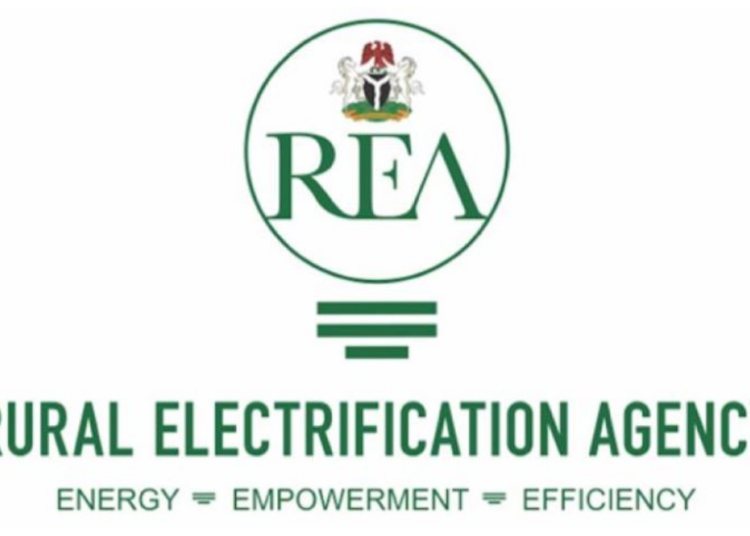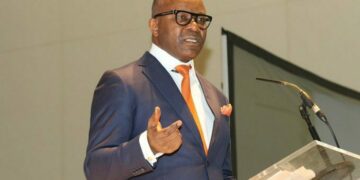In a move to tackle energy access challenges, the Delta State government has signed a Memorandum of Understanding (MoU) with the Rural Electrification Agency (REA) to expand renewable and off-grid power solutions across the state.
This collaborative initiative seeks to bring electricity to approximately 386,046 residents through 120,217 new connections, attract $158 million in private sector investments, and boost the state’s GDP by an estimated $2.9 billion.
Speaking at the roundtable and signing event held in Abuja on Wednesday under the theme “Unlocking Distributed Energy Investments for Industrial Growth and Inclusive Access in Delta State,” Governor Sheriff Oborevwori reaffirmed his administration’s commitment to renewable energy as a catalyst for industrial growth, rural development, and inclusive opportunities.
He emphasised that electricity access remains critical to productivity, investment attraction, and improving livelihoods, adding that this partnership aligns seamlessly with the state’s MORE Agenda and medium-term development plan (2024–2027).
“With over 60 per cent of our communities still unconnected to the national grid, off-grid renewable options such as solar and wind power offer immense opportunities for sustainable energy access,” Governor Oborevwori said.
He stressed that, “Access to reliable electricity is a cornerstone for unlocking productivity, attracting investments, and enhancing livelihoods in communities long left behind. We promise investors a welcoming business environment and are committed to removing bureaucratic obstacles to ensure project delivery.”
The governor also revealed plans for an independent 8.5MW power plant currently under development in Asaba, designed to supply electricity to key government institutions including the Government House, new State Secretariat Complex, Stephen Keshi Stadium, Asaba Airport, and state-owned universities, through embedded renewable systems. Plans are also underway to extend electricity to rural communities and schools.
For his part, the managing director of REA, Engr. Abba Aliyu shed light on the agency’s extensive groundwork, telling attendees, “We have identified 471 potential mini-grid sites across Delta State, with over 83 sites in Ndokwa East LGA alone.” He added, “Mini-grids in these areas could generate more than 31,000 new jobs and power over 120,000 buildings.”
Highlighting Delta’s attractiveness for investment, Aliyu said, “On average, a village in Delta State can have 255 connections. This density makes the state very attractive for mini-grid investments.”
The partnership’s potential was further illustrated by Aliyu’s insights into Nigeria’s wider energy challenge, referencing the National Electrification Strategy and Implementation Plan (NESIP). “We realised that about 190 million people nationwide need enhanced electricity access, with 22 million houses requiring connections. Addressing this challenge needs a $23 billion investment. Forty-five percent of these funds must be channeled toward solar home systems because many communities, especially in Delta, are sparsely populated and not viable for grid extension,” he explained. “Our approach combines solar home systems for remote areas, mini-grids for localized power generation, and grid extension where suitable.”
The executive director of the Rural Electrification Fund (REF), Engr. Doris Uboh also emphasised the vital role of renewable energy in catalysing rural development.
“Electricity is an opportunity, a vital enabler that catalyses rural life and economic development,” she declared. Uboh cited REF’s achievements, noting, “We have deployed over 125 mini-grids, 25,000 solar home systems, and more than 200,000 electricity connections nationwide, creating over 18,000 jobs.”
She described the innovative eHEARTS programme, which targets critical sectors for electrification: “Our eHEARTS program powers health, education, agriculture, and transportation, electrifying 25 communities per state with 2.5 megawatts of clean energy.” Highlighting success stories, Uboh pointed to Okwokolo, a fully solar-powered fishing community in the Delta, which is witnessing business growth and population increases. “Power fuels opportunity,” she stated.
Uboh underscored the importance of collaboration between government, communities, and private investors, saying, “Where communities and governments actively support developers, projects thrive.”
Delta State’s approach contrasts with traditional centralised grids by prioritising decentralised mini-grid systems. A state official explained, “Mini-grids ensure that outages in one part of Delta do not affect others, enhancing reliability and resilience.” The electrification drive is more than providing power; it unlocks vast socioeconomic potential. Uboh illustrated this by referencing a community in Ogbe, home to over 6,000 residents, 11 schools, and two healthcare facilities. “This community sits on an untapped $5 million economic potential constrained only by a lack of electricity,” she said.





